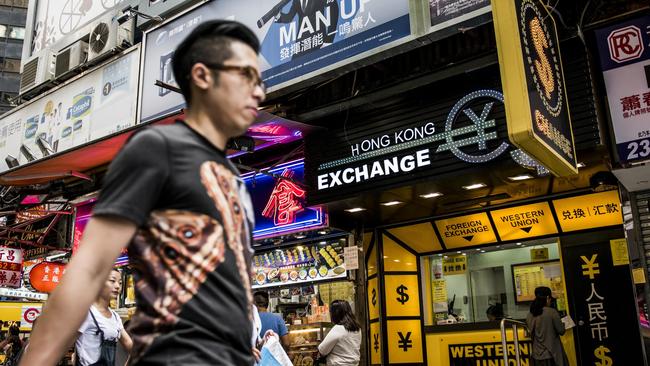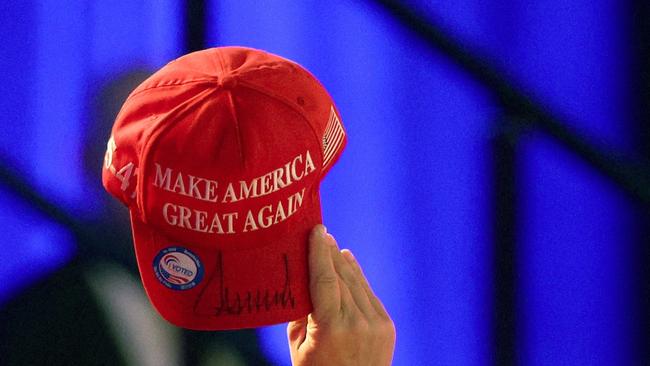Asian currencies plummet on signs of Trump victory
From Mexico to India and Southeast Asia, Trump’s tariff threats send currencies into tailspin, except crypto.

Asian currencies weakened on Wednesday morning as US presidential poll results showed Donald Trump closing in on election victory, a result global markets expect will punish Asian trading nations.
Bitcoin piled almost $US6000 higher to a record $US75,330.88 ($114,978.28), topping its previous peak of $US73,797.98 in March.
Mr Trump has pledged to make the US the “bitcoin and cryptocurrency capital of the world” and to put tech billionaire Elon Musk in charge of an audit of governmental waste.
“The price of bitcoin has closely followed Trump’s position in the polls and on betting markets,” Russ Mould, an analyst at AJ Bell, said ahead of Tuesday’s election. Investors are “potentially taking the view that a Republican victory would lead to a surge in demand for the digital currency”.
Japan’s yen dropped 1.7 per cent against the dollar while other currencies, including the Thai Baht, Malaysian ringgit, Korean Don and Singapore dollar depreciated between 1 per cent and 1.3 per cent. The Mexican peso lost 2.9 per cent, its lowest level this year amid concern a Trump administration’s tariffs could curb demand for Mexican exports.

The Indian rupee dropped to an all-time low against a rallying US dollar (to 84.1725c) amid concerns a second Trump administration would pursue America-First trade policies while pushing India to reduce its trade barriers.
Mr Trump’s threat of a blanket 10 to 20 per cent tariff on all imports into the US could hit manufacturing centres across the region though India is particularly concerned about the potential damage to its key pharmaceuticals, IT and textiles export industries. Many Indians also fear Mr Trump could again crack down on US H-1B visas, narrowing eligibility and increasing scrutiny of applications.
While Southeast Asia has been relatively sanguine about the presidential race, Mr Trump’s tariffs would also punish the region alongside US allies South Korea and Japan.
Oh Ei Sun, a Malaysian senior fellow with Singapore’s Institute of International Affairs, told The Australian a second Trump presidency would be a “double edged sword” for Southeast Asia.
“On one hand Trump will revive his protectionist policies which will make it harder for Southeast Asian countries to export to the US and might even recall some US investments in the region back to the US to make America great again,’ he said.
“On the other hand many countries will breathe a sigh of relief strategically because Trump doesn’t believe in all this alliance building, unlike Biden, so there is less pressure on Southeast Asian nations to choose sides between China and the US.”




To join the conversation, please log in. Don't have an account? Register
Join the conversation, you are commenting as Logout